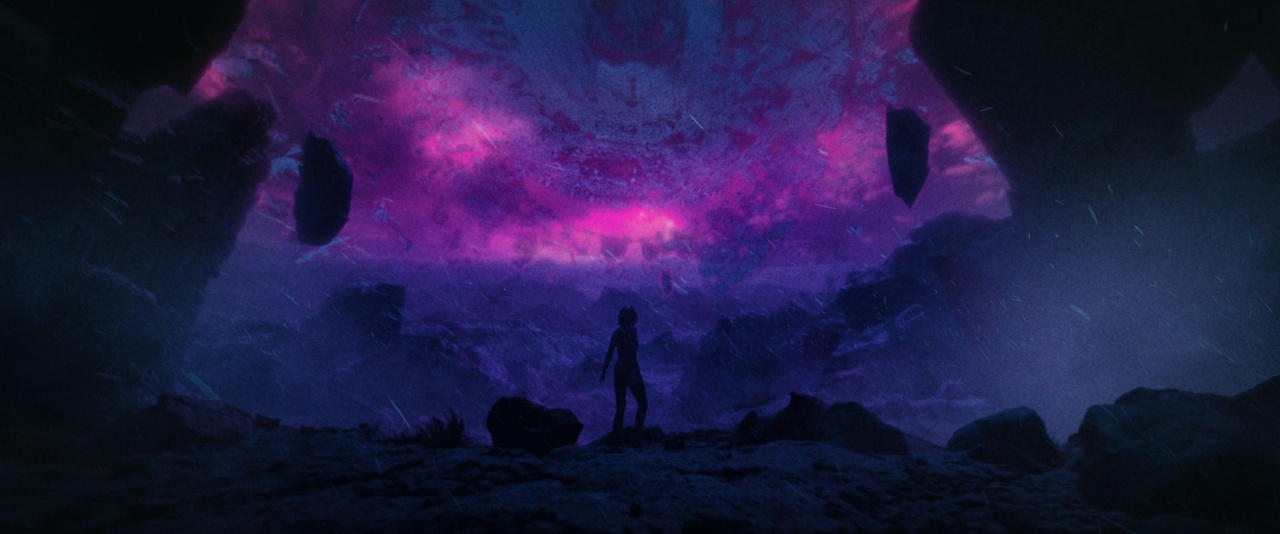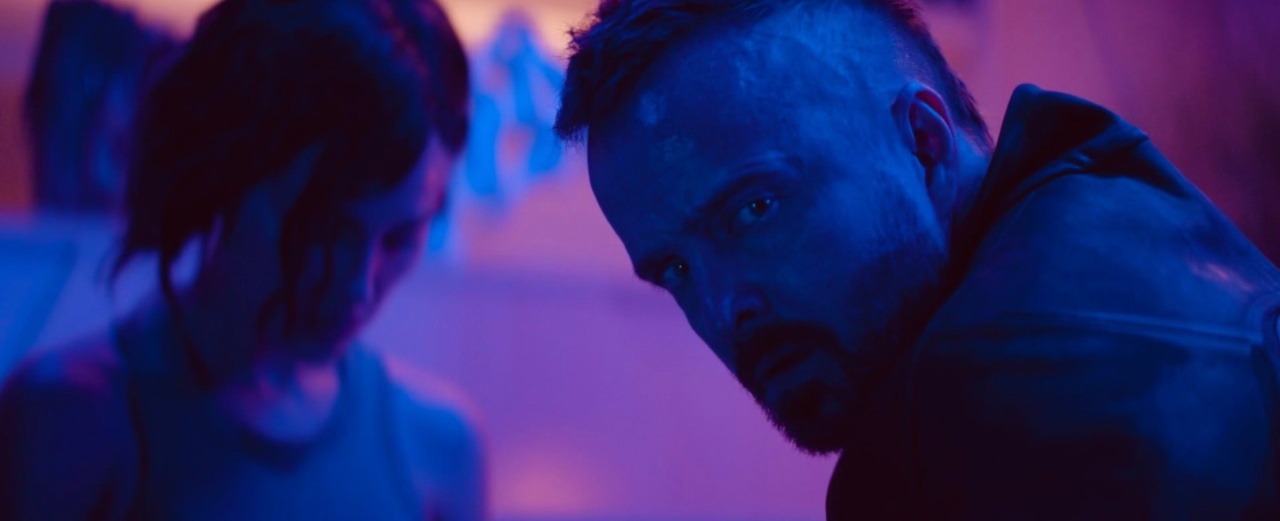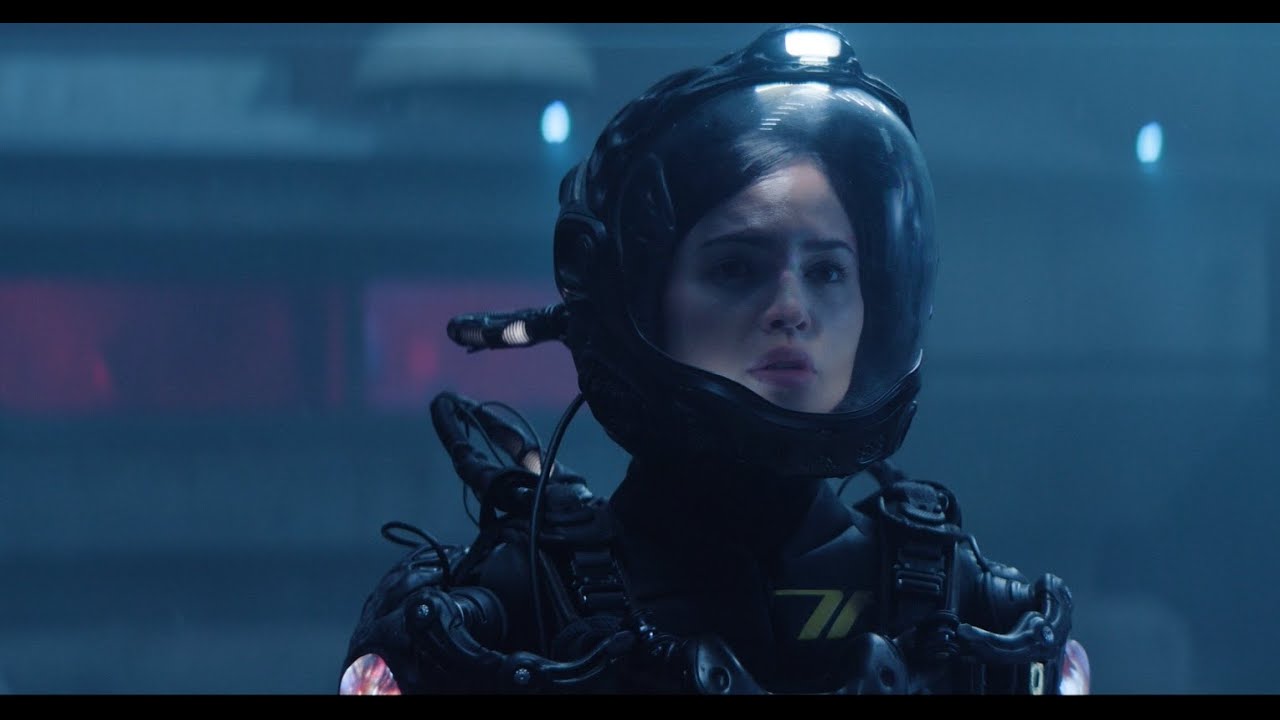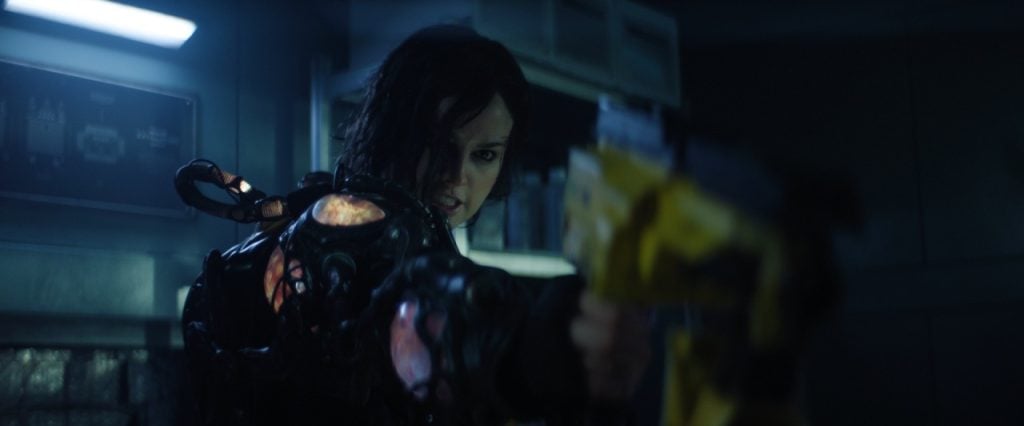Movie trailers have gone overboard, but we knew that already. From twists that should have been left for the film itself to reveal to the many slowed, warped remixes of Radiohead and Starship tunes to dramatize the events we see in snippets, they’ve slowly evolved from short sales pitches featuring deep voices teasing that something major was coming “this summer” to musically-inclined reels for celebrity face cards and “funny” one-liners that garner nary a giggle. But what has really gone awry is the collective insistence on labeling any old Average Joe as some kind of singular artist with maniacal intentions and intellect beyond comparison.
The most notorious (and viral) example came in the form of trailers for Argylle, in which Apple Original Films and Universal Pictures made it explicitly clear that the picture came “from the twisted mind of Matthew Vaughn.” It’s not that Layer Cake, Kick-Ass, and the Kingsman films that Vaughn helmed weren’t at least minimally entertaining as all get out, but “twisted” is far from the first word that should be used to describe his narrative schemes. More recent teasers have categorized Trey Edward Shults’ Hurry Up Tomorrow as the work of a “visionary” director and Thunderbolts* as “a Marvel movie made by a bunch of people who have worked on A24 movies in the past.” Nothing against these folks nor their studio’s best advertising efforts, but adjectives used to mean something in this world.
The only reason that the preceding paragraphs made sense to include in a review of Flying Lotus’ Ash is because the artist who does, indeed, call himself “Flying Lotus” seems like the kind of talent that producers would kill to dub the architect of a singular vision. Born Steven Ellison, Lotus is a DJ, rapper, and the founder of the Brainfeeder record label, but in the last few years, he’s made a foray into filmmaking, distinctively so. His 2017 feature debut, Kuso, caused many a walk-out from Sundance Film Festival audience members; in 2022, he worked on V/H/S/99, directing and co-writing the “Ozzy’s Dungeon” segment of the horror anthology, which depicted the horrifying events that unfolded after a young Black girl’s leg was broken in two while competing on the titular game show, a twisted, Nick at Nite-esque romp that displayed racist tendencies and a disregard for wellbeing during the broadcast that the short focused on. While it’s structurally and thematically familiar, as with the best V/H/S entries, its scares and proclivity for disgust made “Ozzy’s Dungeon” stand out, and signified Lotus as someone to watch in the filmmaking space.

RLJE Films & Shudder Release.
He’s hardly the first musician to pursue an alternate cinematic track – The Weeknd co-created The Idol and has the aforementioned Shults directing a feature-length companion piece to his latest album, also called “Hurry Up Tomorrow,” and he’s just one example – but Lotus isn’t on the same level of fame as Taylor Swift or Charli XCX, two of the latest pop stars to threaten the world with auteur efforts on the horizon. He could be called “singular” or the owner of a “twisted” mind, and folks might have questions, but it wouldn’t be the same as calling Prince “the sicko behind Graffiti Bridge.” (And not just because that would imply that any sane individual has ever watched Graffiti Bridge in the first place.)
Perhaps the brass at RLJE Films and Shudder avoided tagging Lotus with any hyperbolic adjectives in the lead-up to Ash because it’s his sophomore feature debut. Or, maybe it’s because Ash isn’t much of a movie at all. And that’s a compliment, given how Lotus transcends the bounds of Jonni Remmler’s relatively familiar script with a slew of inventive, colorful images that might even feel more at home in a music video, or an art installation, or even in one of those hypnotic YouTube compilations that is designed to relax your mind, body, and soul with its kaleidoscopic waves of neon hues. All of this is not to say that Ash doesn’t look or feel like a movie, but that its rhythms are altogether more psychedelic than your typical space thriller fare.
Remmler’s script follows an astronaut named Riya (Eiza González) who, stationed on a distant planet, wakes up from an event that she can’t remember and discovers that her entire crew has been brutally killed. She doesn’t know where she is; she doesn’t know who she is; and to make matters worse, the only other person on the ship – Brion (Aaron Paul) – is a fellow traveler who claims he knows her and was sent to rescue her, though she seems to have no recollection of ever knowing him at all. It’s the basic set-up for a “can anyone be trusted?” narrative set in a futuristic outer space locale – think 2021’s Oxygen, if Mélanie Laurent’s character got out of her inescapable cryogenic chamber and no longer had to search for breathable air, but for proof that she could trust her spaceship’s only other inhabitant – though it’s Lotus’ ability to intercut Riya’s moments of doubt with images from the recent past, moments just prior to and in the midst of whatever attack took out her entire crew. Each ensuing flashback is that much more disconcerting than the last, terrifying reminders of something Riya should remember yet can’t seem to. It’s as if Lotus set out to direct the whole project as if he was manufacturing a vibe of his own making, constantly unsettling if not always original.

González and Paul have solid chemistry as two companions-or-strangers, and there’s a fascinating juxtaposition between the lone two souls inhabiting their shared vessel, especially when they’re on their own. Being the lead, González is the one we spend more time with when she roams the spacecraft solo, desperately attempting to piece together exactly what unfolded while being tormented by visions that suggest the culprit might, in fact, be her. It’s a breathy, emotional performance that gives her more to do than any past role has come close to affording, not to mention one that makes her inclusion in Guy Ritchie’s extended troupe – she had a supporting turn in The Ministry of Ungentlemanly Warfare and will appear in each of his next two features – all the more unfortunate. She’s clearly an actor with the ability to do more than those parts allow for, and perhaps even more to offer than what Ash provides, but it’s a credit to Lotus for trusting the gifted González with something even slightly more complex than the I Care a Lots and Godzilla vs. Kongs of the world.
Paul is a more proven commodity, not solely in the film and television space, but in the space… space, too; the Breaking Bad favorite starred in the single good episode of Black Mirror’s sixth season, a thriller called “Beyond the Sea” that saw him face off with Josh Hartnett, a dream for those who have yet to see the episode yet have enjoyed the still ongoing Hartnettaissance. In Ash, however, he never overshadows González, instead playing the perfect friend (or foil?), one who is perhaps afforded one too many close-ups in order to swell his potential threat level along with a viewer’s suspicion. Thankfully, Lotus never goes so far as to isolate Paul’s Brion, as with how fundamental Remmler’s script is, any moment focused on Brion alone would almost certainly make his true intentions too obvious for the film’s own good. Even if the truth is immediately evident for audiences who have a basic understanding of the events of Alien or any of its many offshoots, Paul is convincing as both sides of his given coin.
Similarly to how Alien-educated viewers will react to Brion’s presence, they’ll be right to expect an off-the-rails conclusion that becomes intensely violent and speaks, in a way, to one of Brion’s mid-movie promises that his and Riya’s discovery of the truth will “change the fate of our entire existence.” But these simpler ideas can be easily forgiven thanks to Lotus’ visual sensibility, his seemingly endless capacity for creating indelible images out a space we have often been told is mere darkness. With the help of his own score, Richard Bluck’s cinematography, and visual effects by Ryan Munt and George Port, Lotus’ imagined interstellar future is lit in pink and blue tones, with the planet Riya and her crew are stationed on looking like an infinitely-better crafted version of Marvel’s Vormir. Even if its narrative goals are familiar, even overdone to the point where parody is on the table, Ash is a feast of images that make Lotus a director worth experiencing. After all, that’s much closer to what his films are than mere movies.
Ash is currently playing in theaters courtesy of RLJE Films and Shudder.

Even if its narrative goals are familiar, even overdone to the point where parody is on the table, Ash is a feast of images that make Lotus a director worth experiencing. After all, that’s much closer to what his films are than mere movies.
-
GVN Rating 6.5
-
User Ratings (0 Votes)
0
Will Bjarnar is a writer, critic, and video editor based in New York City. Originally from Upstate New York, and thus a member of the Greater Western New York Film Critics Association and a long-suffering Buffalo Bills fan, Will first became interested in movies when he discovered IMDb at a young age; with its help, he became a voracious list maker, poster lover, and trailer consumer. He has since turned that passion into a professional pursuit, writing for the film and entertainment sites Next Best Picture, InSession Film, Big Picture Big Sound, Film Inquiry, and, of course, Geek Vibes Nation. He spends the later months of each year editing an annual video countdown of the year’s 25 best films. You can find more of his musings on Letterboxd (willbjarnar) and on X (@bywillbjarnar).






